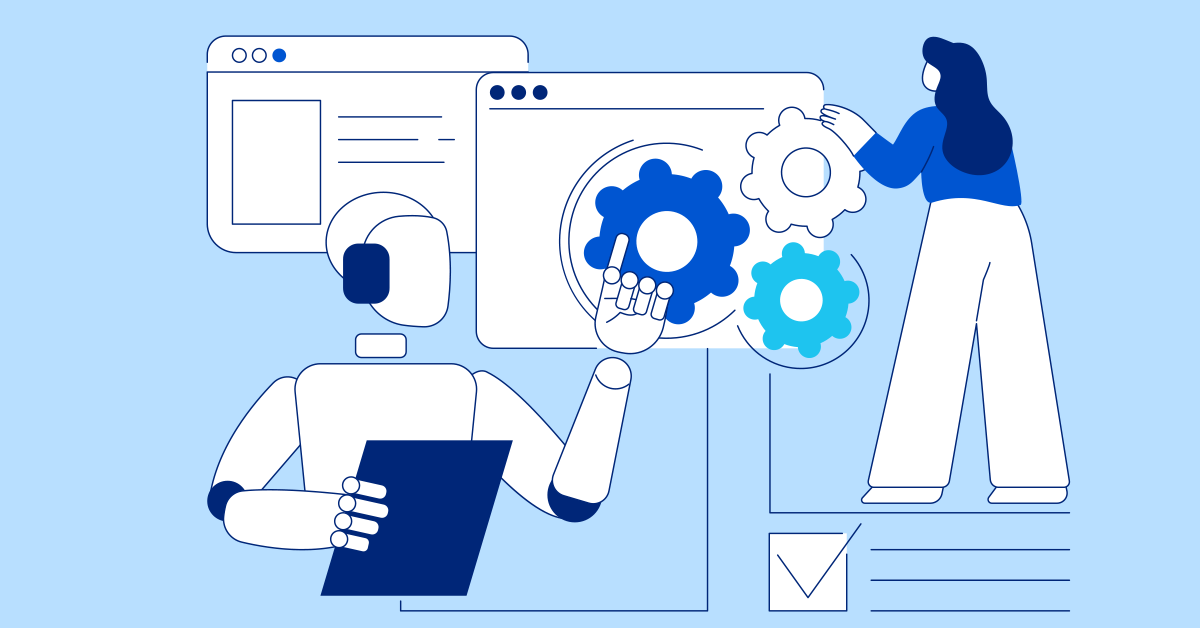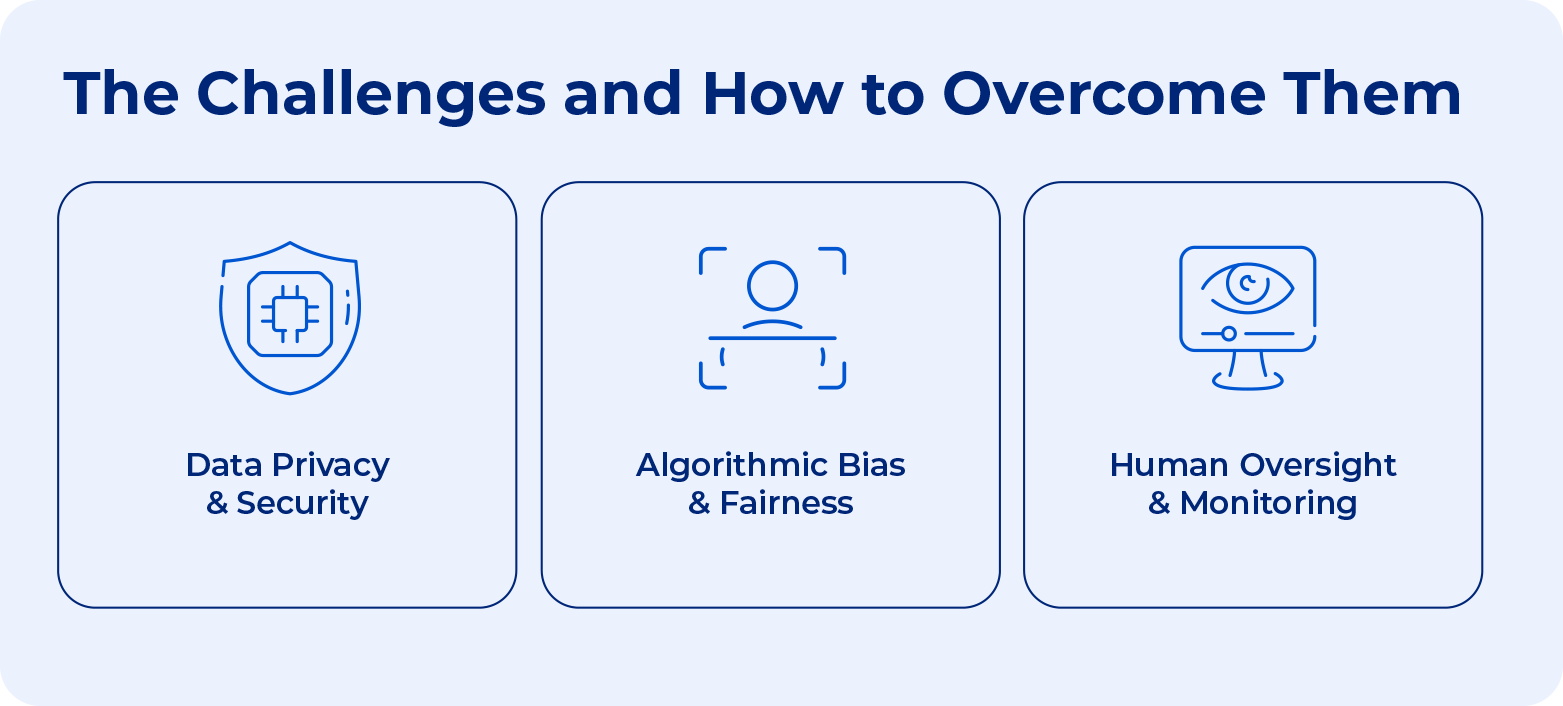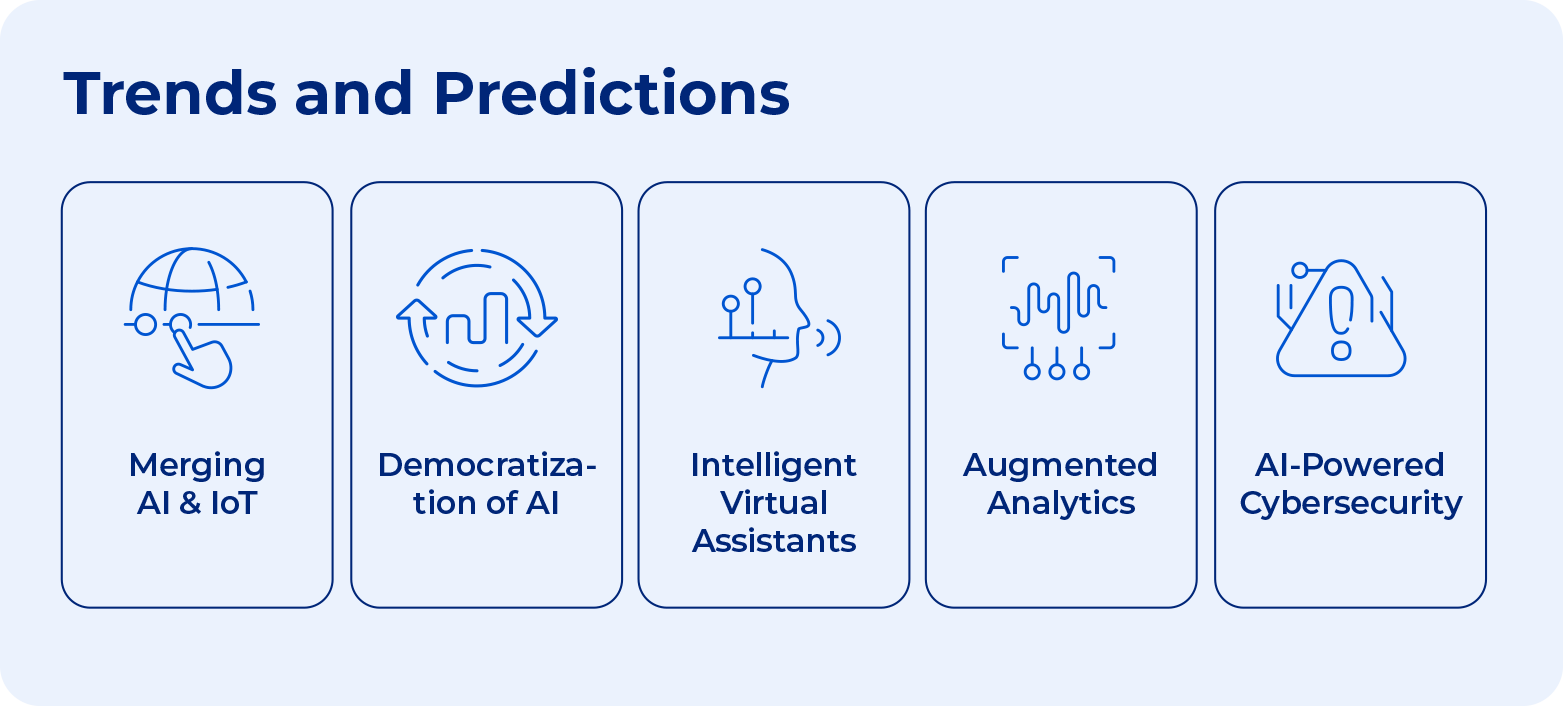Artificial Intelligence (AI) and Machine Learning (ML) have been transforming the Software as a Service (SaaS) domain just like about any other industry nowadays. Such innovation empowers companies to streamline processes and take operational efficiency and scalability to new heights.

Read on to find out how AI SaaS platforms play a significant role in the AI revolution.
AI and SaaS: A Potent Combination
Enterprises combine AI and SaaS to not only leverage the limitless capabilities but to further amplify their impact. ML-powered AI algorithms process and analyze massive data sets to detect patterns or anomalies and base decision-making on numerical evidence. On the other hand, SaaS platforms give access to the infrastructure that facilitates businesses to take advantage of their full capabilities.
As a result, the demand for AI-powered SaaS solutions has skyrocketed, and over half of SaaS companies worldwide already intend to build their business strategies around AI and increasingly rely on it in the future.
Key AI Applications in SaaS
Marketing automation, CRM, data analysis, cybersecurity – the list of SaaS platform applications that AI and ML are transforming can go on forever.
You can find some of the most significant use cases below:

1. Personalized User Experience
AI empowers SaaS platforms to tailor offerings and recommendations to personalize user experiences based on customer data about behaviors, patterns, and anomalies. For example, AI helps marketing automation tools boost engagement and conversion rates with personalized email campaigns, targeted advertisements, and tailored content recommendations. AI-powered CRM systems also derive actionable insight that is priceless when prioritizing leads, detecting cross-selling opportunities, and tailoring solutions.
2. Intelligent Process Automation
Automating repetitive and sizeable tasks frees up resources and enables companies to focus on more strategic and expertise-demanding aspects of their work. AI SaaS platforms streamline processes, reduce manual work and the risk of costly errors, and vastly improve efficiency.
AI-driven project management tools automate assignments, schedules, and report generation to virtually eliminate manual data entry and analysis. Likewise, customer service chatbots for instant support manage routine inquiries while only forwarding complex tickets to human agents to accelerate response times and boost customer satisfaction.
3. Data-Driven Decision Making
We cannot overstate the importance of speed and accuracy when it comes to data-driven insights. Data analytics and business intelligence Saas platforms leverage Artificial Intelligence and Machine Learning algorithms to process and analyze massive datasets, detect patterns, and base decision-making on statistical evidence. Furthermore, AI systems’ ability to gather and process structured and unstructured data from different sources is critical for the identification of opportunities and keeping a competitive edge. Such sources include social media, customer feedback, market reports, etc.
4. Cybersecurity and Fraud Detection
As cyber criminals become increasingly creative and prolific, SaaS platforms must be at their vigilant best to safeguard sensitive data and enhance system security. AI and ML’s prowess in real-time detection of anomalies, fraudulent activities, and potential threats is due to meticulous monitoring of user behavior, network traffic, and system logs. AI-driven tools adapt to emerging cyber threat patterns to proactively identify and mitigate risks and help SaaS platforms raise their cybersecurity game.
5. Scalability and Resource Optimization
SaaS platforms need to scale seamlessly in accordance with market dynamics, and AI elevates their scalability via resource and computing optimization. AI algorithms are particularly beneficial for cost management as they identify patterns and predict demand to provide a 360-degree view and real-time allocation of resources. Optimized cost, performance, and responsiveness inevitably result in profitability and growth.
The Challenges and How to Overcome Them
Naturally, in spite of all the benefits, there are also challenges and ethical considerations for SaaS companies to address proactively and best practices to follow if they are to leverage AI’s full capacity.
You can find the most sensitive areas below:

1. Data Privacy and Security
AI algorithms depend on data, and businesses have to protect the sensitive information the SaaS platforms typically contain. Without safeguarding its privacy and security, it is impossible to guarantee that data complies with regulations, so breaches are becoming very likely. This means robust data governance policies, encryption protocols, and access controls are critical to eliminating the risk of unauthorized access and data leaks that can undermine the customers’ trust and prove costly.
2. Algorithmic Bias and Fairness
Word associations, facial recognition, and even criminal justice biases are among the top examples of AI algorithm failures with discriminatory results. AI models cannot help but reflect historical biases already present in the training data or simply amplify any incorrectness and incompleteness of information. This means SaaS companies must invest in extensive monitoring for biases and address them immediately by diversifying training data and conducting systematic audits.
3. Human Oversight and Monitoring
AI automation comes in handy, especially when it comes to repetitive tasks with a low level of actual expertise required, and it is hard to argue with its stunning results. However, AI technology’s sheer complexity is reason enough to monitor it, as it is complex, needs maintenance, and can sometimes be unpredictable. That is why human intervention is always desirable, as is the clarity and transparency of guidelines and processes.
Trends and Predictions
The significant progress that the integration of AI into SaaS platforms has brought can make us forget that it is still early days for such innovation and there is even greater future ahead. Following certain trends can help SaaS companies that incorporate AI and machine learning into their solutions to remain competitive and deliver true value to their customers. Indeed, the potential of AI SaaS platforms is all but limitless, and you can find some of the most critical trends below.
1. Merging AI and IoT
The Internet of Things (IoT) is quickly becoming immensely popular as connected devices are generating increasing volumes of data. The merging of AI and IoT facilitates real-time processing and analysis to derive valuable insight and enable automation across industries.
2. Democratization of AI
AI technology has become easier to access and utilize, which has already democratized its capabilities – a trend unlikely to go away. SaaS platforms will further facilitate AI and ML usage regardless of companies’ size, resources, and technical expertise. Such democratization is a significant factor in fostering innovation across industries.
3. Intelligent Virtual Assistants
AI-powered Virtual assistants and natural language processing (NLP) have already revolutionized the interaction between humans and machines and made it truly intuitive. Intelligent virtual assistants will continue to increase the level of customer support personalization and automation to provide enhanced user experience.
4. Augmented Analytics and Decision Support
Business intelligence and data analytics SaaS platforms will further leverage the capabilities of AI-driven augmented analytics. Such solutions process and visualize data to derive valuable insights and recommendations that accelerate the organizations’ decision-making.
5. AI-Powered Cybersecurity and Risk Management
As cyber criminals become more prolific and refined, SaaS platforms become even more reliant on AI-powered cybersecurity and risk management. This means that real-time identification and response to cyber threats are a must, and the AI and ML capabilities to adapt to evolving malware are invaluable assets.
Conclusion
Integrating artificial intelligence and machine learning into SaaS platforms is inevitable if organizations of any industry domain are to embrace cutting-edge technology and remain competitive.
Process automation, personalized user experiences, and decision-making based on numerical evidence are among the benefits businesses simply need to invest in to take advantage of AI SaaS platforms’ immense potential. Their capabilities related to cyber security, risk management, scalability, and resource optimization are also critical to driving innovation and delivering more value to customers.
Naturally, there are challenges and ethical aspects that also need careful consideration, as they cannot afford to ignore data privacy, algorithmic fairness, and the necessity for human oversight. However, an experienced technology partner’s consultancy services can turn the AI integration journey into a smooth and cost-efficient sailing. You can find details about Scalefocus’ AI prowess here, or get in touch with our AI consultants to discuss your own AI projects and how you can leverage our extensive expertise.




